I'M ONE TO TALK
Our Blog Posts will help you reach your full potential in becoming a confident conversationalist. New topics each week.
Sports Conversation Starters for Your Workweek
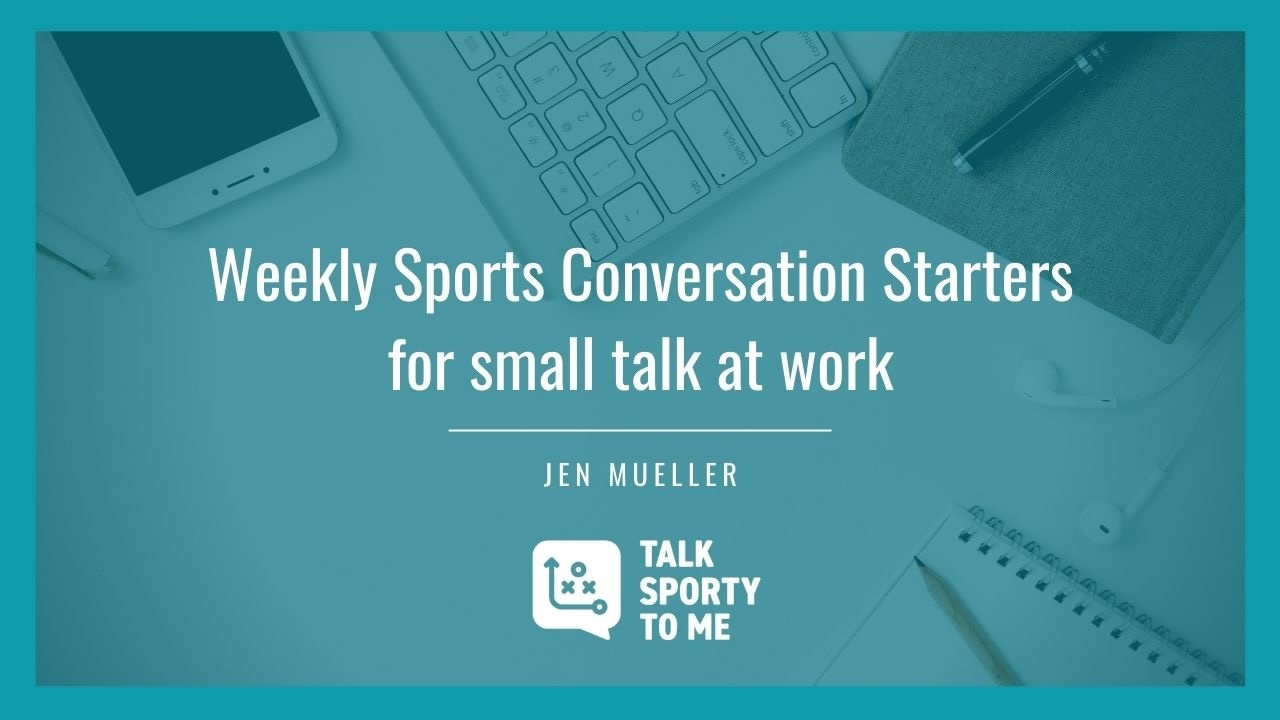
The Super Bowl matchup is set. There’s a huge NBA milestone on the horizon and there are a handful of topics you can use in small talk this week. Sports is more than stats and scores, you’ve read this from me before, but you may or may not have seen the most recent Thinking Outside the Box Scores video that could be really useful this week because of LeBron James and I’m launching my new cooking show I Cook, You Measure on Friday.
Sports talk and sports conversations come in many different forms. Find one that works for you and use these talking points as conversation starters this week.

What do you and LeBron James have in common?

You're both working toward a goal.
LeBron James is about to reach an NBA milestone and become the all-time leading scorer in NBA history. Your goal might not be as lofty, but you're still working toward one.
And here's where we can think outside the box scores and use a major sports headline as a way to check in with your own progress.
You don't have to be a basketball fan to recognize the name LeBron James. You don't have to care about his milestone, but I know you care about yours. So make it about you. Use sports as a trigger or reminder for tracking your own progress.
It's just one of the ways you can use sports conversations and sports fandom in productive ways at work.
Sports Conversation Starters for Your Workweek
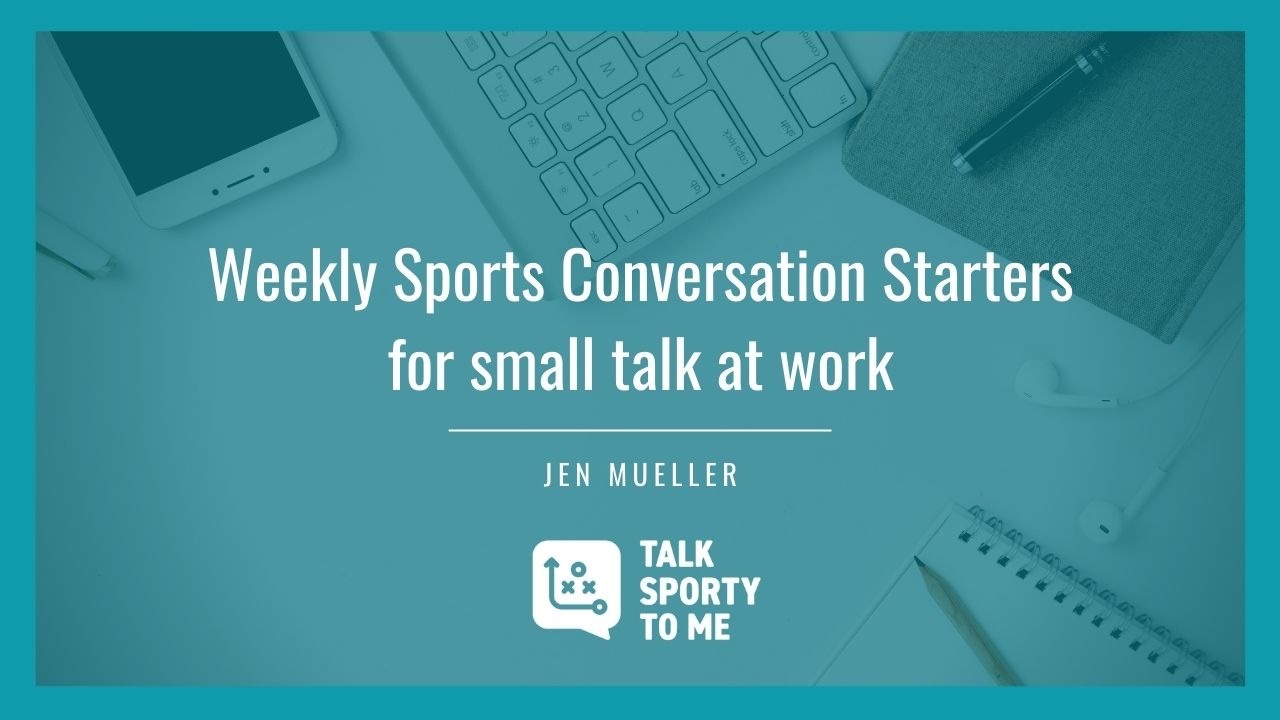
Our work relationships are far more important than we give them credit for.
That’s one of the key findings in a recently published book on the scientific study of happiness. The authors also note that it can be difficult and awkward to form relationships because the modern workplace is maximized for efficiency and the ability to work independently. There’s also the fact that many conversation topics are off limits and taboo.
So, what can you do to build relationships that lead to more satisfying relationships at work? Start with small talk. Sports small talk in particular could be the entry point you’re looking for with so many topics you can’t (or shouldn’t) talk about at work.
You don’t have to care about the outcome of a game to engage in a short worthwhile conversation with a colleague. You can learn a lot about the people you work with in every interaction even if it’s just a conversation about one of these sports topics making headlines this week.

Don't point fingers. Use sports instead.
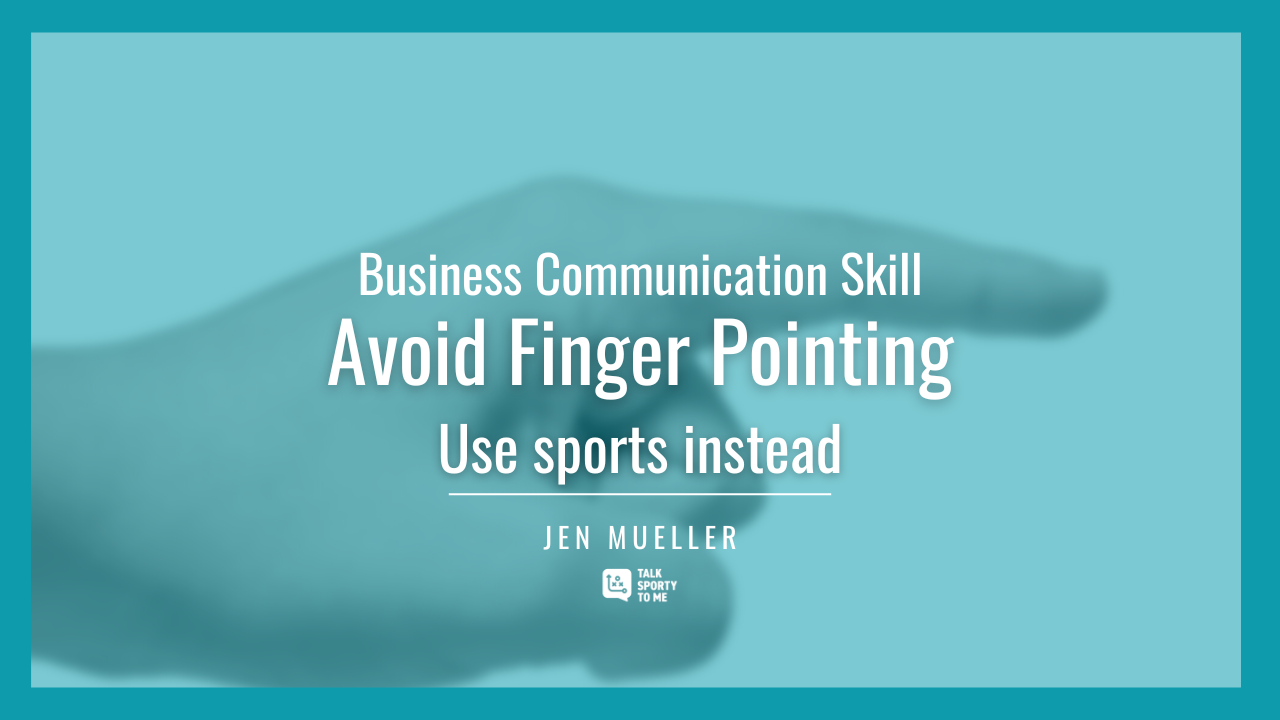
Pointing out a mistake or initiating a conversation about poor performance can be a challenge in business settings. Especially if you don’t like confrontation or when it feels like you’re pointing a finger or calling someone out.
Time management was a huge issue during the NFL Wild Card games. The outcomes of those games doesn’t matter. It’s about the opportunity to have a bigger conversation about something that matters to your team at work.
Look at sports as more than stats and scores and you’ll find ways to make sports talk more useful in business.
Sports Conversation Starters for Your Workweek

All it takes is a Sunday of watching football to realize how judgy I am. I’m not proud of it, but I did find myself making unfair judgements about teams, players, coaches and fans based on what I saw on TV. (As a point of reference, I’m an NFL sideline reporter and rarely have an entire Sunday to watch football but the Seahawks played Saturday and lost so I had a day on the couch to watch football.)
I’ve spent 20+ years in locker rooms and I love my guys, but I can understand why opposing fans might not feel the same way about all the players I’ve covered. I also know from personal experience that getting to know players (i.e. people) on a personal level makes a huge difference. Being willing to engage and cultivate a relationship is the difference between being skeptical and becoming a full-blown fan.
Let me sum up this personal revelation by saying this – you choose the relationships you have with the people around you. You can choose to get to know them better or you can choose t...
Make Winning Obvious
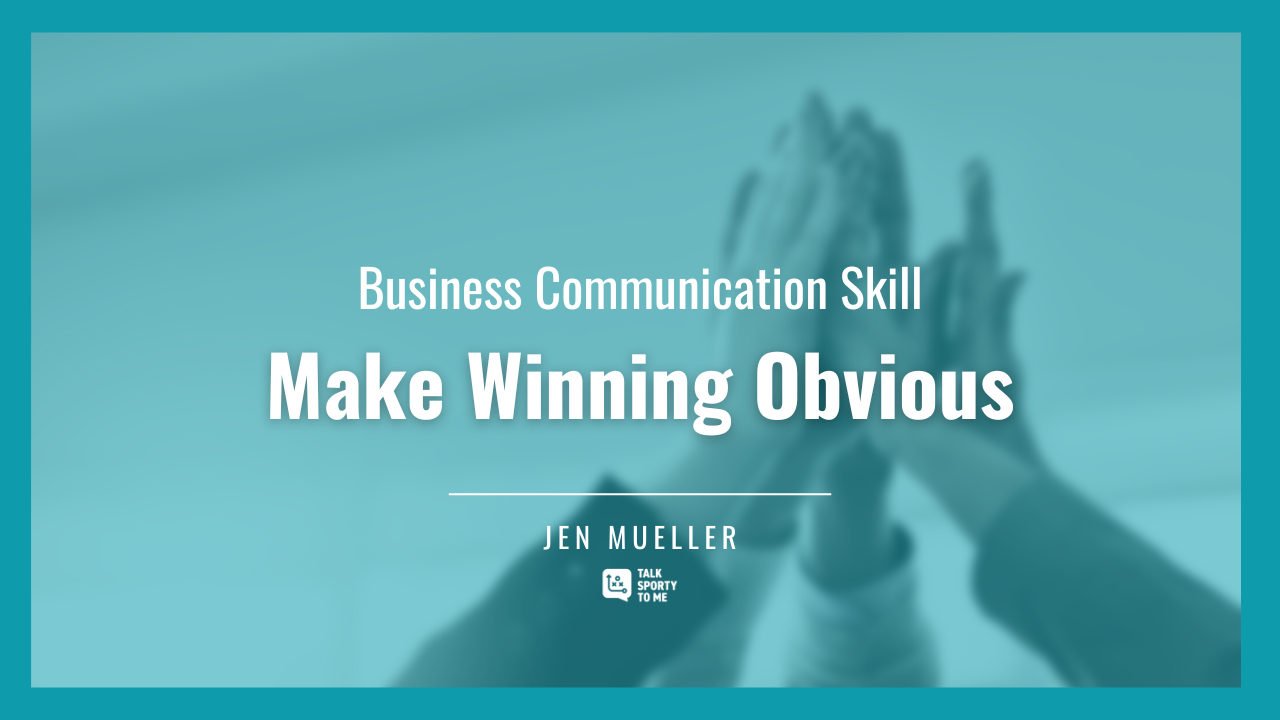
In sports it is painfully obvious you need to outscore an opponent to win.
If you say, "That was a big win!" everyone - even non-sports fans - knows that means one team scored more points than the other.
Outscoring an opponent isn't a key to the game it is the measure of success.
Why am I belaboring this point? Because we rarely make it this simple, straightforward or obvious in business. Things get convoluted quickly. There are multiple interests and just like with any game plan, multiple ways to get to the end result. But unlike sports, we rarely make winning as obvious as we should.
As mentioned in the video, winning looks different for different people. The bottom-line drives decisions, but that means something different for a CEO compared to a manager compared to a direct report.

That brings us back to Thinking Outside the Box Scores... it should be painfully obvious to everyone on your team what counts as a win. You should be able to communicate it as simply and cl...
Sports Conversation Starters for Your Workweek
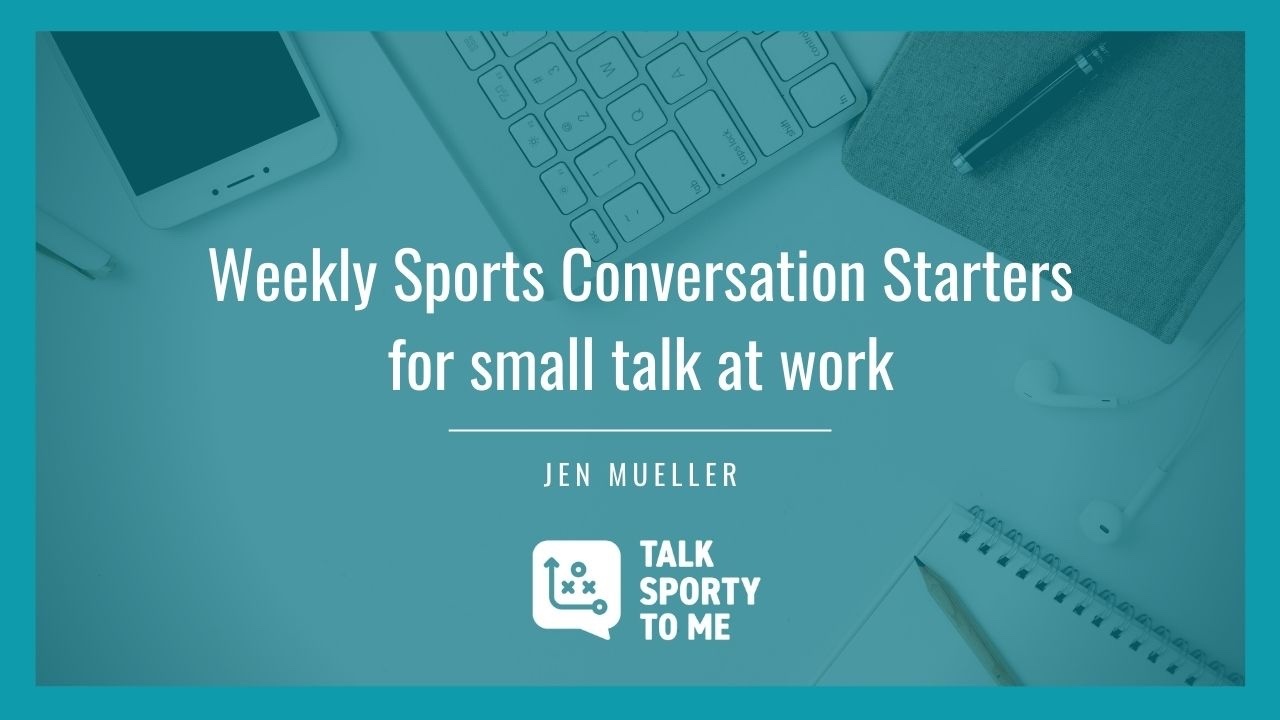
Football is too violent for some people. Baseball is slow for others. Hockey doesn’t make sense to one group of fans while basketball and soccer has never been an interest to others.
You don’t have to share the same opinion about sports as everyone else, but you should consider respecting others for their opinion. You might think the conversation is just about sports, but it’s also a chance to practice conversation skills (and maybe empathy) that’s needed in business conversations. You don’t have to agree but try to talk (and listen) to other sports fans this week using these sports conversation starters.

Goal Setting in 2023. Focus on your Strengths

Not a single athlete looks at a challenge or opponent and admits defeat before playing the game.
Even if the oddsmakers say it’s improbable, even when fans hedge their bets and talk a little less trash or refuse to get their hopes up - athletes and coaches refuse to give into the thought of an insurmountable task or being outmatched by an opponent.
It’s never about what the other team does or where they’re likely to come up short. They’re always thinking, talking and working from a position of strength and confidence. It doesn’t mean they don’t see the challenges. It doesn’t mean there isn’t a game plan in place to counter the strengths of the opponent. It means they’re focused on their strengths, they’re capabilities and their best chances to win.
The best athletes and most successful coaches don’t assume or anticipate failure before competing.
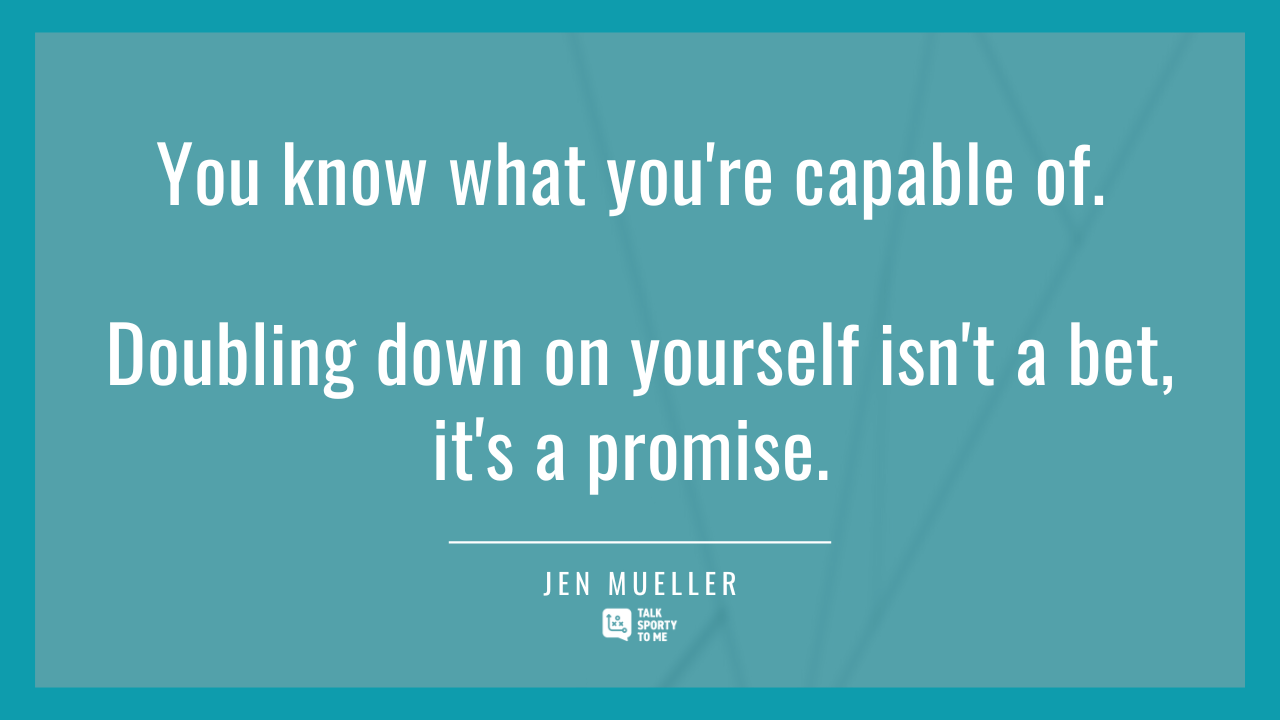
Where are you starting the year? Are you focusing on your strengths and where you’ll find the most success? Or are you obsessed with th...
Sports Conversation Starters for Your Workweek
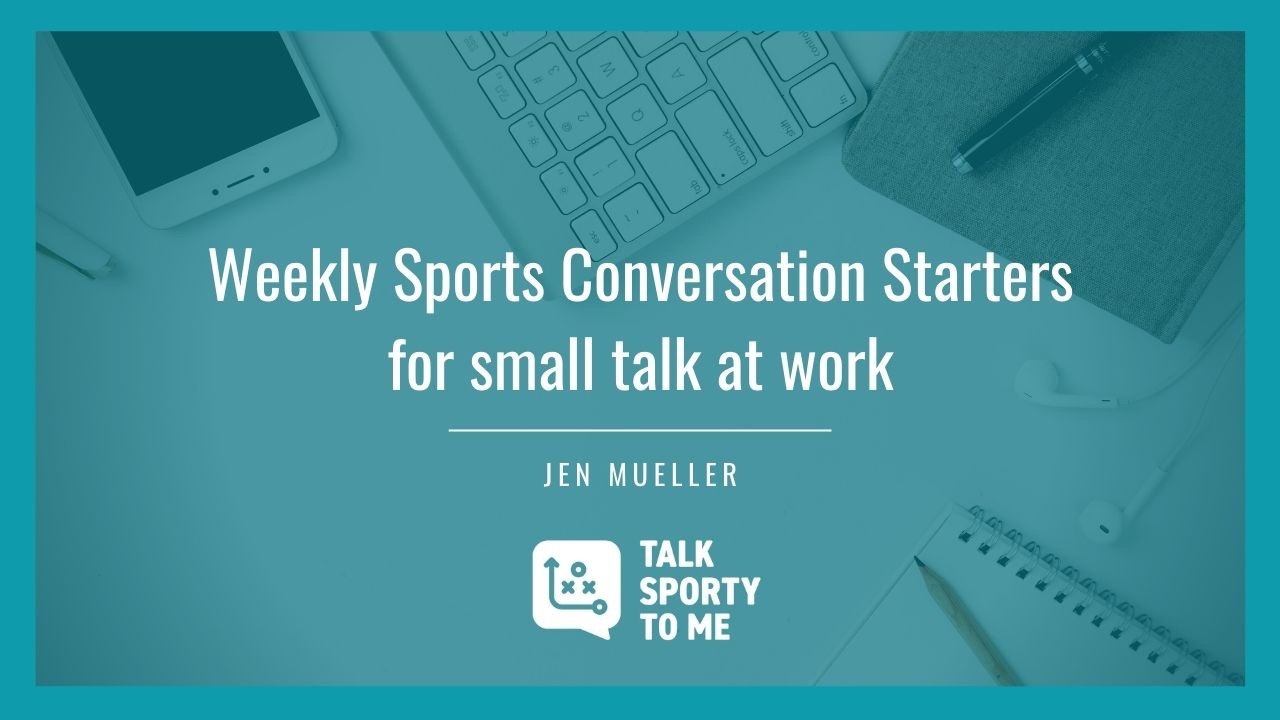
Happy New Year!
It’s the time of year we typically start new habits and routines. You’re already used to glancing through this weekly list of sports conversation starters, but maybe you add one new thing to your Monday morning routine. It could be paying more attention (like actually reading the headline) of a sport you typically overlook. Or maybe you commit to initiating one more sports conversation a week.
Sports fandom doesn’t have to be time consuming. Sports conversations don’t have to be intense. Both fandom and sports small talk can be useful in relationship building at work. Here are topics you can use this week.
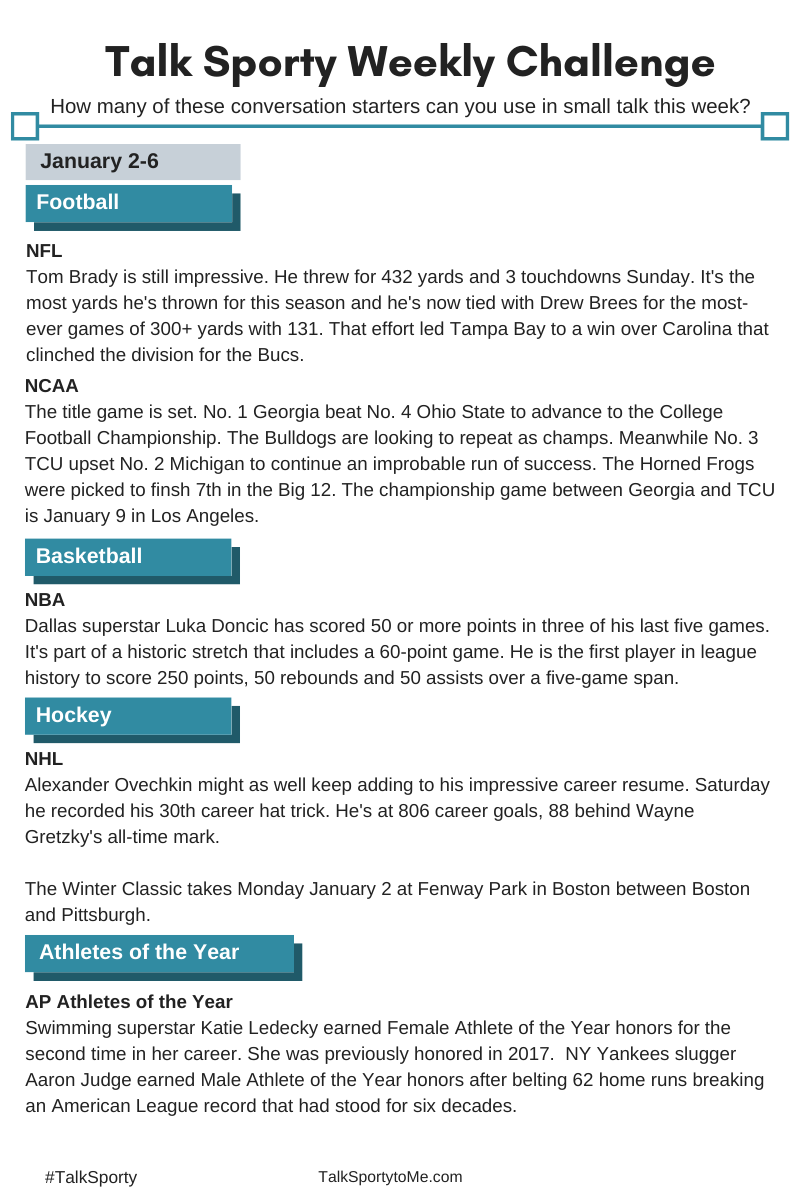
Sports Conversation Starters for Your Workweek

During this holiday season I hope there are more conversations with family and friends than colleagues this week, but regardless of who you encounter these sports conversation starters can help get the conversation going.



